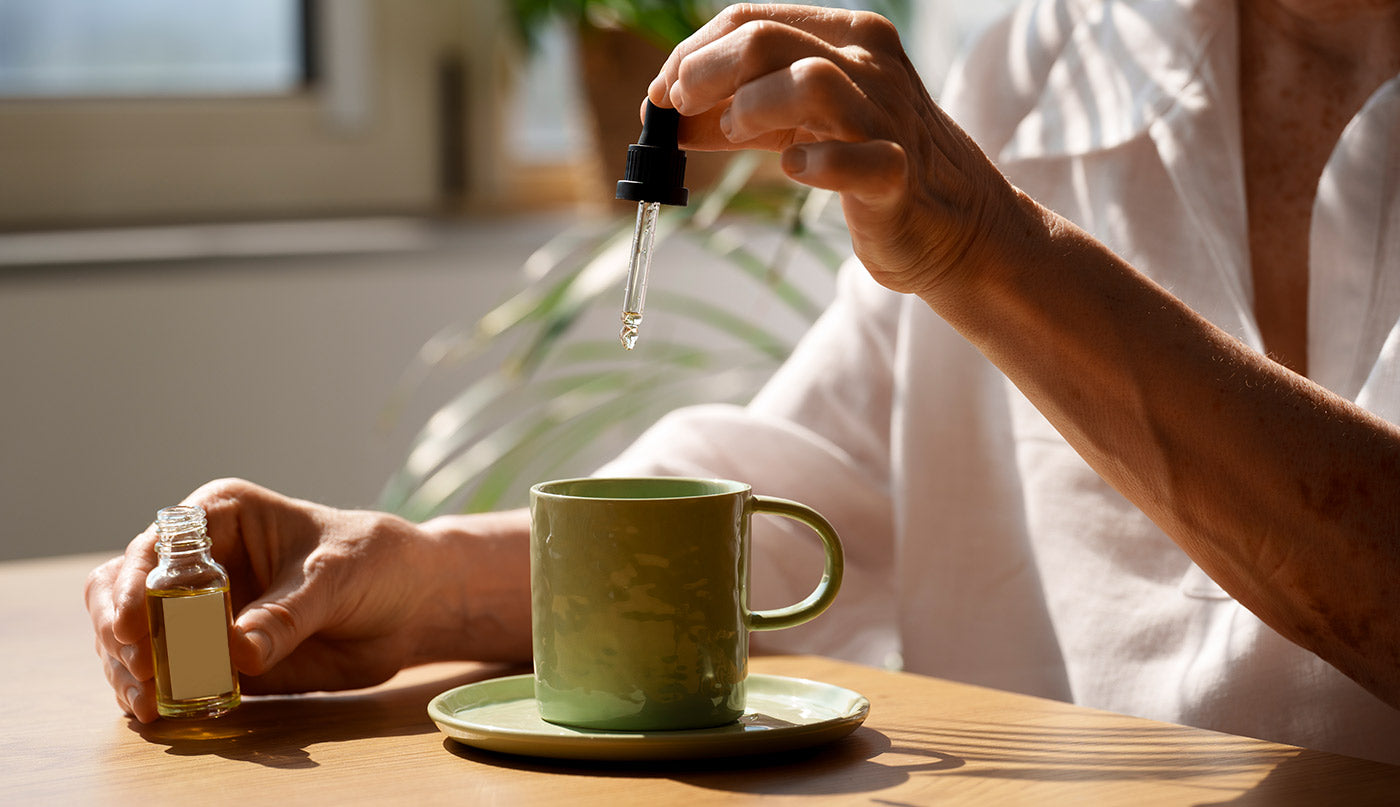
Natural Treatments for Depression
While conventional treatments such as antidepressants and psychotherapy are widely used and effective for many, some individuals prefer exploring natural or alternative treatments. These approaches focus on holistic methods, addressing the physical, emotional, and psychological aspects of depression without relying solely on pharmaceuticals.
1. Diet and Nutrition for Mental Health
Nutrition plays a critical role in mental health, and several studies have shown that dietary patterns can influence the development and management of depression.
Omega-3 Fatty Acids
Omega-3 fatty acids, found in foods like fatty fish (salmon, mackerel), walnuts, flaxseeds, and chia seeds, have anti-inflammatory properties and are essential for brain health. Research suggests that individuals with depression may have lower levels of omega-3s, particularly eicosapentaenoic acid (EPA) and docosahexaenoic acid (DHA). Supplementing with omega-3s or increasing dietary intake can help improve mood and reduce symptoms of depression.
B Vitamins
B vitamins, particularly B6, B12, and folate, are crucial for brain function and neurotransmitter regulation. A deficiency in these vitamins has been linked to depression. Foods rich in B vitamins include leafy greens, legumes, whole grains, eggs, and meat. For individuals with dietary restrictions, B-vitamin supplements may be beneficial.
Magnesium
Magnesium plays a role in many bodily functions, including muscle relaxation, nerve function, and mood regulation. Low magnesium levels have been associated with depressive symptoms. Dark leafy greens, nuts, seeds, and whole grains are excellent sources of magnesium. Some studies suggest that magnesium supplements can also help reduce the severity of depression.
Probiotics
The gut-brain connection has become an area of interest in mental health research. A healthy gut microbiome can positively influence mood and emotional health. Fermented foods like yoghurt, kimchi, sauerkraut, and kefir contain probiotics that support gut health. Some research indicates that improving gut health through probiotics may help reduce symptoms of depression, although more studies are needed in this area.
2. Exercise and Physical Activity
Physical activity is one of the most well-researched natural treatments for depression. Regular exercise boosts the production of endorphins and serotonin, both of which are neurotransmitters that play a key role in mood regulation. Exercise also helps reduce stress and anxiety, two common contributors to depression.
Aerobic Exercise
Aerobic activities such as walking, running, swimming, or cycling have been shown to improve mood and reduce depressive symptoms. Engaging in just 30 minutes of moderate exercise several times a week can significantly improve overall mental well-being. Studies suggest that exercise can be as effective as medication in some cases of mild to moderate depression.
Strength Training
In addition to aerobic exercise, strength training has also been found to benefit those with depression. Lifting weights or engaging in bodyweight exercises like push-ups and squats can boost confidence, improve self-esteem, and reduce depressive symptoms. Strength training also promotes better sleep, which is often disrupted in individuals with depression.
Yoga and Pilates
Mind-body exercises like yoga and Pilates combine physical activity with breathing exercises and mindfulness, helping to reduce stress, improve mood, and enhance mental clarity. These practices promote relaxation and self-awareness, making them particularly beneficial for individuals experiencing emotional distress.
3. Mindfulness and Meditation
Mindfulness and meditation practices have gained widespread recognition for their effectiveness in managing depression. These techniques focus on calming the mind, increasing self-awareness, and reducing rumination (repetitive negative thinking).
Mindfulness-Based Cognitive Therapy (MBCT)
Mindfulness-Based Cognitive Therapy combines traditional cognitive behavioural therapy (CBT) with mindfulness strategies. It helps individuals recognise and change negative thought patterns while teaching them to remain present and avoid getting overwhelmed by depressive thoughts.
Meditation
Meditation encourages relaxation and focus, promoting a sense of peace and calm. Regular meditation practice can reduce symptoms of depression, anxiety, and stress by teaching individuals how to observe their thoughts without judgment. Practices such as guided meditation, loving-kindness meditation, and body scanning are commonly used to enhance emotional well-being.
4. Herbal Remedies
Several herbs have been traditionally used to treat symptoms of depression. While these remedies may not work for everyone, some individuals find relief from herbal supplements. It’s important to consult a healthcare provider before starting any herbal treatment, especially if you’re taking other medications.
St. John’s Wort
St. John’s Wort is one of the most widely researched herbs for treating mild to moderate depression. It is believed to increase the availability of neurotransmitters such as serotonin, dopamine, and norepinephrine, which are involved in mood regulation. However, it can interact with certain medications, including antidepressants, so it should be used with caution.
Saffron
Saffron, a spice derived from the flower Crocus sativus, has shown promise in some studies as a natural treatment for depression. It appears to have similar effects to antidepressants in increasing serotonin levels, with fewer side effects.
Rhodiola Rosea
Rhodiola Rosea is an adaptogenic herb that helps the body manage stress. It has been studied for its potential to reduce fatigue, anxiety, and symptoms of depression, especially in individuals with mild to moderate depression. Rhodiola works by influencing serotonin and dopamine production, helping to stabilise mood.
5. Alternative Medicine
In recent years, alternative medicine has gained popularity for its potential to help manage symptoms of depression. These treatments focus on the body’s natural ability to heal and regulate mood.
Alternative medicine may work by interacting with the body’s regulatory systems to promote relaxation, reduce stress, and improve mood. Some patients have reported feeling calmer, less anxious, and better able to manage their depressive symptoms with its use.
Forms of alternative medicine include:
- Topical applications such as oils, creams, and balms applied to areas of tension or pain.
- Oral forms, including oils and capsules, that support overall mental health.
- Edibles, which may provide longer-lasting relief for mood management.
The use of alternative medicine should always be done under the guidance of a healthcare professional to ensure proper dosing and safety.
6. Sleep Hygiene and Relaxation Techniques
Sleep disturbances are common in depression, and poor sleep can exacerbate depressive symptoms. Establishing good sleep hygiene practices can improve sleep quality and enhance mood.
Creating a Sleep Routine
Creating a consistent sleep routine is crucial for individuals with depression. Going to bed and waking up at the same time each day, limiting caffeine and alcohol, and creating a calming bedtime routine can help improve sleep.
Relaxation Techniques
Relaxation techniques such as deep breathing exercises, progressive muscle relaxation, and guided imagery can help calm the nervous system, reduce stress, and promote better sleep. These techniques are easy to incorporate into daily routines and can be especially beneficial for managing anxiety and insomnia in individuals with depression.
7. Social Connection and Support Networks
Social isolation is both a symptom and contributor to depression. Staying connected with family, friends, or support groups can help alleviate loneliness and provide emotional support.
Peer Support Groups
Support groups, both online and in person, offer a space where individuals with depression can share their experiences, offer advice, and find comfort in knowing they are not alone. Many people find that peer support is an essential part of their recovery journey.
Counselling and Psychotherapy
While natural treatments for depression are beneficial, combining them with counselling or psychotherapy can lead to better outcomes. Therapies like cognitive behavioural therapy (CBT), interpersonal therapy (IPT), and psychodynamic therapy can help individuals address the root causes of their depression and develop healthier coping strategies.
Summary
Natural treatments for depression offer a variety of ways to manage symptoms without relying solely on pharmaceuticals. From nutrition and exercise to mindfulness practices and herbal remedies, there are many holistic approaches to enhancing mental health. Alternative medicine also provides an option for those seeking a natural remedy to support mood regulation and overall emotional well-being.
For individuals looking to manage depression, combining natural treatments with professional therapy or medical guidance can create a comprehensive approach to recovery. Consulting with a healthcare provider is essential when exploring any natural or alternative treatment, ensuring safety and effectiveness tailored to individual needs.
Sources
- Beyond Blue. Depression: Treatment and Support.
- Australian Psychological Society. The Role of Exercise in Depression Management.
- Black Dog Institute. Nutrition and Depression.
- Healthdirect Australia. Natural Remedies for Depression.
- Lifeline Australia. Understanding Depression and Anxiety.

